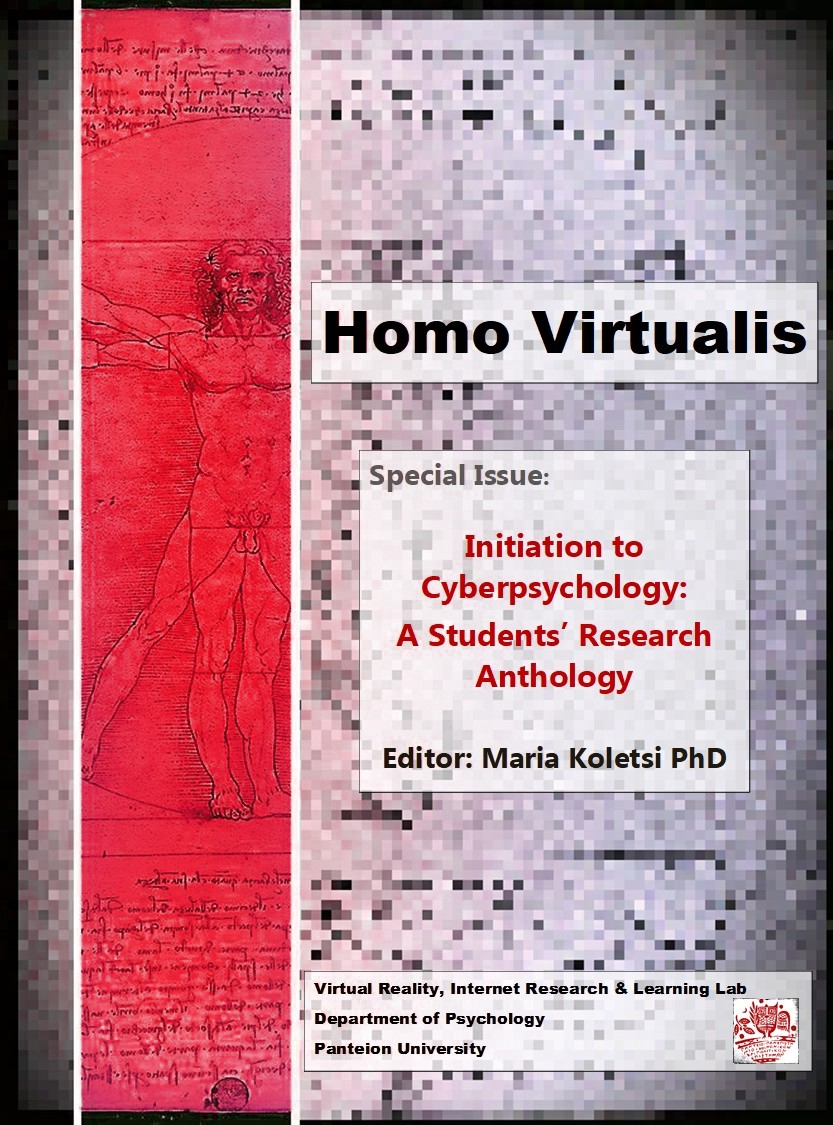The Use of Virtual Reality in the Science of Psychology
Περίληψη
With the evolution of technology, digital gaming became a more holistic and realistic experience that engages all senses. This novel capacity was seized by Psychological Science. The aim of this literature review was to describe some of the usages of Virtual Reality (VR), specifically in the domains of Developmental, Clinical, Social, Organizational, Athletic Psychology and Neuropsychology. Some of the findings were that VR can promote children’s socialization and self-control in the case of Developmental Psychology. Research on Clinical Psychology has shown that VRT contributes to phobia treatment and can help analyze negative self-image in individuals with eating disorders. In the area of Social Psychology, it can reduce prejudice and enhance prosocial behavior, by providing the ability to manipulate variables and achieving high experimental control and ecological validity. Furthermore, it can enhance employees’ productivity and help them cope with stress in Organizational Psychology and boost athletes’ motivation and decision making in Athletic Psychology. In Neuropsychology, VR gives the potential of early diagnosis and rehabilitation of neuropsychological complications of Traumatic Brain Injury, Brain Stroke, Parkinson’s Disease and facilitates the reduction of Autism Index. Overall, psychological research, diagnosis and treatment via VR seems so far to be a rich and promising field for further investigation that will possibly improve different people’s quality of life.
Λεπτομέρειες άρθρου
- Πώς να δημιουργήσετε Αναφορές
-
Lampathaki, N., Evangelou, M., Papageorgiou, M., Stefanidou Tsiavou, A., & Chomko , G. . (2022). The Use of Virtual Reality in the Science of Psychology. Homo Virtualis, 5(1), 166–187. https://doi.org/10.12681/homvir.30340
- Ενότητα
- Έρευνες προπτυχιακών φοιτητών

Αυτή η εργασία είναι αδειοδοτημένη υπό το CC Αναφορά Δημιουργού 4.0.
Οι συγγραφείς των άρθρων που δημοσιεύονται στο περιοδικό διατηρούν τα δικαιώματα πνευματικής ιδιοκτησίας επί των άρθρων τους, δίνοντας στο περιοδικό το δικαίωμα της πρώτης δημοσίευσης.
Άρθρα που δημοσιεύονται στο περιοδικό διατίθενται με άδεια Creative Commons 4.0 και σύμφωνα με την άδεια μπορούν να χρησιμοποιούνται ελεύθερα, με αναφορά στο/στη συγγραφέα και στην πρώτη δημοσίευση για μη κερδοσκοπικούς σκοπούς.
Οι συγγραφείς μπορούν να καταθέσουν το άρθρο σε ιδρυματικό ή άλλο αποθετήριο ή/και να το δημοσιεύσουν σε άλλη έκδοση, με υποχρεωτική την αναφορά πρώτης δημοσίευσης στο περιοδικό
Οι συγγραφείς ενθαρρύνονται να καταθέσουν σε αποθετήριο ή να δημοσιεύσουν την εργασία τους στο διαδίκτυο πριν ή κατά τη διαδικασία υποβολής και αξιολόγησής της.



